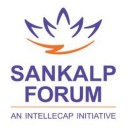This article originally appeared on the Sankalp Forum website, on the 12th July 2016. The original article can be found here.
In recent years, there have been increased efforts from world leaders to tackle the major challenges of development. The Paris Agreement on climate change has bound countries to commit to decreasing CO2 emissions while the Sustainable Development Goals (SDGs) have designed a pathway to achieving fair and equilibrated development. Of utmost importance to today’s interview is SDG 7, which calls for ensuring access to affordable, reliable, sustainable and modern energy for all. In addition, Southeast Asian countries have set ambitious goals as per their energy policies and targets. For instance, Thailand and Indonesia are both aiming to raise the share of renewable energy in their national energy mix to 25% by 2022 and 2025 respectively. Following the same trend, Malaysia is also aiming for its share of renewable energy to reach 11% by 2020.
Despite these remarkable intentions, access to reliable and clean energy is still far from reality for most people in Southeast Asia. The current situation is heterogeneous; while some houses are connected to the grid, others are off the grid and rely on highly polluting sources of energy, such as kerosene, charcoal or car batteries. In Indonesia, the country where Clean Power operates, a large majority of the population has access to electricity; however, there are still more than 60 million people without access to electricity and more than 100 million people without access to modern energy. This is the highest number in any country in the Asia Pacific region.
This scenario has presented social enterprises with opportunities to explore alternative solutions for electricity access. Clean Power Indonesia is a company specializing in the implementation of biomass gasification technology using bamboo, and is also creating awareness about bamboo cultivation as a renewable energy source in rural areas. We first met Clean Power during the Sankalp Summit in Indonesia last year. Their idea was ranked among the top 5 in our enterprise competition, the Sankalp Award. Today we spoke with founder Mr. Jaya Wahono to ask some questions about their achievements after Sankalp and understand their perspectives on the sector.
Stefano: Hi Jaya. It is a pleasure meeting you again after one year!
Jaya: Hi Stefano, nice to meet you as well!
Stefano: I would like to start this conversation by asking about the path of Clean Power Indonesia since the last year.
Jaya: We succeeded in getting full funding for our off grid bamboo-to-electricity power plant for rural electricity on Mentawai Island of West Sumatra Province. We also have succeeded in including our on-grid bamboo to power in the Government’s master plan for electricity development on Bali Island. The Governor of Bali has pledged to use 100% renewable energy sources for additional power capacity for the island, which will amount to 1000 MW in the next 10 years.
Stefano: That’s sounds great, Jaya. How do you see the market for renewable energy growing in Indonesia?
Jaya: I see a big market for distributed renewable energy, such as the one we developed here in Indonesia, opening up in this region. Frost and Sullivan estimates that the market will hit 35,000 MW by 2020.
Stefano: I am sure that you have also welcomed the Paris Agreement on climate change with great hope for our common future, but where do you see the bigger obstacles to the full development of initiatives like yours in the country?
Jaya: In Indonesia, the government has introduced many regulations that are favorable to renewable energy developers, such as attractive feed-in tariff and tax facilities. However, developers still face strong resistance from conventional providers while buying electricity from renewable energy sources. In addition, I have noticed how funding can be extremely difficult because national banks in Indonesia still lack a complete understanding of the nature of renewable energy projects. Despite these hurdles, we believe that the combination of bamboo cultivation and biomass gasification technology will help Indonesia become energy sufficient and empower rural communities all over the country by providing clean energy.
Stefano: Thank you for your answers Jaya. Before we say goodbye, would you share with other entrepreneurs how participating in the Sankalp awards has helped Clean Power Indonesia?
Jaya: Sankalp has given us the opportunity to grow our network beyond our national boundaries and to cooperate across many sectors. I would definitely encourage any social entrepreneur in the Region to attend the Sankalp Forum.
Stefano: Thank you Jaya.
Jaya: Terima kasih kembali Stefano dan semoga berhasil Sankalp!
For further reading on climate philanthropy after the Paris Agreement, see our free June issue here.



Comments (0)